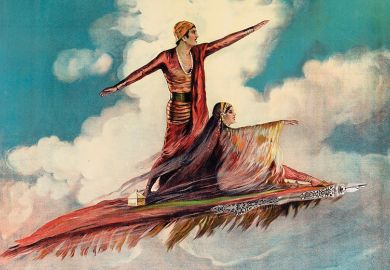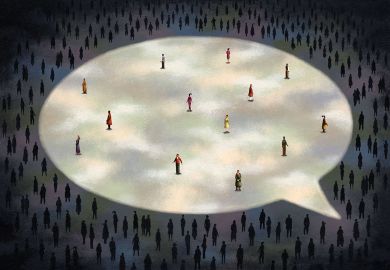When Virginia Woolf wrote A Sketch of the Past she described the house she had lived in as a child, with all its furnishings, and I shall borrow that trick for a moment and describe the bookshelves in the house where I spent my childhood in Old Delhi - the tall, glass-fronted bookcase in a corner of the drawing room where my parents' books were lined - volumes of German poetry, auto-biographies of Nehru and Gandhi, the fiction of Galsworthy, Somerset Maugham and Sinclair Lewis; then the green-painted boxes piled on each other that my siblings filled with their collections - Louisa May Alcott's oeuvre in one sister's box, Walter Scott and Hardy in another's, Hemingway and Stein-beck in my brother's. I browsed through them all - I was a goat in a meadow, munching. On the day I was given my pocket money I rushed to Atma Ram's in Kashmere Gate and hunted through stacks of school and college texts for poetry, for fiction, my manna. Then, in my final year at college, I won the first and only prize of my scholastic career: it was called the Pershad Memorial Prize, I think it was for English, and it was a cheque to be spent on books. I took it, not to Atma Ram's but to Ramakrishna Booksellers in Connaught Place where the stock was fresher, crisper, and on their shelves discovered the green uniform Hogarth Press edition of Woolf's work. I discovered her for myself - neither teachers nor family had directed me. I pasted the prize label on to the endpapers of one volume, and began to read. The voice - low and reflective or quick and fleeting, always liquid and light - spoke to me directly. Here I found, in print, "a secret language which belonged to me".
These words are not mine but Hermione Lee's in the chapter entitled "Biographer" that relates how she discovered Woolf (in a white-and-orange Penguin edition, on a bedroom table in a friend's house). Clearly this is a literary discovery that readers remember - of all generations, in all parts of the world. No one ever doubts, on opening her books, that here is a unique voice that we (women) all claim as our own.
I had already started to write - a few short stories, some book reviews and travel pieces for various journals - but am sure that the "voice" I employed was tentative and commonplace. It was when I started reading Woolf that I became aware how voice defines and shapes ideas and themes. Hers encour-aged mine, and freed it. Even now, on a dry, airless day at my desk, I have only to open her diary and read a few entries, or a passage from To the Lighthouse or Jacob's Room, to move forwards again, with renewed confidence and excitement. It is almost as if her writing supplies a current, a flow of air, that sets my own boat moving along a river where it has been stalled, or becalmed.
I was not aware, as a college student, of the cult that was growing around Woolf in England. That came later; browsing through the shelves in the British Council Library (oh, what it was to step into its air-conditioned lobby out of the blistering sun and smothering dust of the Delhi summer outside, and drink in its books like great gulps of water down a parched throat), I saw volume being added to volume of her diaries, her letters, the many biographies, till it seemed her life was the most well substantiated in English letters. That life was not what had originally fascin-ated: it followed, in a great swelling tide.
She had not foreseen this: "I am not the most widely lived or the most richly memoried . . . My memories, which are always private . . . must soon run dry." They did not, because her private life was so extraordinarily rich and deep, and because far from being the protect-ed and privileged literary icon of legend, she was actually, as Lee proves in her monumental biography, at the centre of all modernist movements in the 20th century: "She speaks to us of issues which are vital to us and are not yet resolved." Her writings on style and form in letters, on feminism, on Freud and the sexual revolution, on war and pacifism cannot be ignored - they remain vital, her genius being that instead of closing debates, she was always opening them, and leaving them open to fresh challenge and debate.
Her biographer finds her "both a contemporary and a historical figure" and Woolf herself had been aware that in her home in Hyde Park Gate, "Two different ages confronted each other . . . the Victorian age and the Edwardian age . . . While we looked into the future we were completely under the power of the past. Explorers and revolutionists . . . we lived under the sway of a society that was 50 years too old for us . . . We were living in 1910, they were living in 1860." The latter was, to her, the world of "respectable, mummified humbug" represented by her father's fierce domination, her mother's unquestioning self-sacrifice. In Three Guineas she was to describe a wild, visionary party where the daughters of educated men would "'dance around the fire' of the old hypocrisies and the old patriarchal institutions while their 'mothers would lean from the upper windows and cry: 'Let it blaze! Let it blaze!'" Lee delights in listing such "radical, subversive" acts of subject as her role in the Dreadnought Hoax, a frivolous enough incident that nevertheless succeeded in thumbing a nose at both the Stephen family, represented by Commander William Fisher, and the British Navy; in the suffragette movement - where she was rather reluctant and sceptical but increasingly admiring and respectful; and in the postimpressionist exhibition organised by Roger Fry in 1910 which the public viewed as the work of lunatics, and evidence of the mental sickness of the nation. This connection made between art and sickness would have been a painful one for Woolf.
Woolf's "madness" has been wrapped under such swathes of gauzy bandaging by feminists and analysts that it is refreshing to have Lee free her from them: "Virginia Woolf was a sane woman who had an illness. She was a patient but she was never a victim. She was not weak, or hysterical, or self-deluding, or guilty or oppressed. On the contrary, she was a person of exceptional courage, intelligence and stoicism, who made the best use she could, and came to the deepest understanding possible, of her own condition. She endured, periodically, great agony of mind and severe physical pain, with remarkably little self-pity." As for the illness itself, it was "attributable to genetic, environment and biological factors . . . It was precipitated but not indubitably caused by the things which happened to her." So much ink has flowed over these "things" - eg, Gerald Duckworth's sexual abuse of her as a six-year-old child outside the dining room door, which led Louise de Salvo to ask, "Can there be any mystery in why Virginia Woolf had trouble eating in later life?" - that it is useful to have Lee sensibly remind one: "There were many more long-term, problematic influential features in her childhood than this" (among others, the many deaths in the family, and her father's violent rages and melodramatic appeals for sympathy) "and it distorts the thick complexity of her family life to isolate and emphasise this one."
For one thing, there was the high rate of mental illness in the family: Leslie Stephen's nephew Jem starved himself to death in an asylum and his first daughter, Laura, by Minny Thackeray, was so uncontrollable that she too was committed to an asylum, a typically Victorian response to the dilemma, "unimaginative and disciplinarian". What Lee asks us to remember is that "she was an abnormal daughter of Leslie Stephen who lived in the same house as Virginia and was 'put away'". There is no evidence that Woolf ever identified with her - she called her an "idiot", "a joke", and mad. Yet, as a figure of fear, her effect must have been immense, all the more for being secret.
In the same way, whereas she might have been expected to be sympathetic to T. S. Eliot's ill, unhappy wife Vivien, she actually recoiled from her, calling her "this bag of ferrets that Tom wore round his neck", and spoke of him as "a pale, poor creature" - although on other occasions as "a kind of Crippen in a mask" and "a great toad with jewelled eyes". (In 1921 she was to write of herself: "A wife like I am should have a label to her cage: She bites!") We have no proof that she knew that Eliot consulted Leonard about Vivien with such enquiries as: "She wants to begin writing again: do you think I should encourage her or not?" to which Leonard replied: "It all depends . . . you must begin with food and rest which alone begin to produce stability . . . When stability begins, then a little work like writing is good." Shades of Charlotte Perkins Gilman's The Yellow Wallpaper! If Woolf did know of this correspondence, or ever think their cases were analogous, it would explain the violence of her reactions.
But she did portray madness in her fiction, in the figure of Septimus Smith in Mrs Dalloway, allowing herself to swing back and forth dangerously between the dazzling social life of London and the anguished interior mind much as she did in her own life, with Leonard providing the balance, the stability that he believed could only be achieved by diet and rest. His approach - "grimly unflinching" - appears unimaginative but it was all the treatment there was before the first world war led to the experience of shellshock, or before the discovery of lithium, and it was what helped Woolf live a productive life as long as she did. (Her sister Vanessa to whom she was so devoted, for all their rivalries in love and work, was much more ruthless, encouraging her children to think of their aunt as "cracked", "barmy", a batty, malicious untrustworthy and eccentric genius and, at the very end, after her last visit to her in Rodmell, in 1941, writing cruelly "What shall we do when we're invaded if you are a helpless invalid . . . ")
Virginia was pathetically grateful to Leonard for his care - except for periodic outbursts of regret over not having children, a decision she blamed on him. In some scenes cancelled from The Years, Lee has found a fierce and ugly one that suggests she may have visited a doctor for an abortion (for three guineas) "at some point in 1913 . . . But this is speculation". She has resisted the temptation of treating her subject's writing as an expression of her madness or a form of therapy, insisting that in spite of "the closeness, all her life, to a terrifying edge", she was able to create "a language which faces it and makes something of it. This is a life of heroism, not of oppression, a life of writing wrested from illness, fear and pain" - recalling E. M. Forster's words in praise of her works, how they reminded him of "a row of little silver cups . . . 'These trophies,' the inscriptions run, 'were won by the mind from matter.'"
Turning away deliberately from a reading of Woolf as a patient or victim, Lee prefers to place her squarely in the centre of the literary world she enjoyed so greatly (when it did not make her feel like "a biscuit in the middle of rats"). She is very good at giving the histories of her friendships with writers like Katharine Mansfield (an intellectual but not emotional one) and Vita Sackville-West (emotional and physical but not intellectual), and rightly points out the importance of the Hogarth Press to her. What started off as a therapeutic hobby, and cottage craft, had two profound effects: it released her from the need to find a publisher for her writing and freed her to write as she wished ("the only woman in England free to write what I like"), the importance of which cannot be overemphasised, and also placed her at the head of the modern movement in letters. She and Leonard notoriously turned down Joyce's Ulysses but published Eliot's early poems and "The Waste Land", Mans-field's "Prelude", many of the young poets like Spender, Plomer and Blunden, as well as tran-slations from the Russian of Gorky, Bunin, Tolstoy and Chekhov as well as the work of Freud, Melanie Klein and Anna Freud.
Woolf herself resisted the ideas of Sigmund Freud that those around her were reading and discussing avidly. She had taken part in the campaign to bring him to England, she met him once - they talked about Hitler and he gave her a narcissus. Finally, in 1939, she began to read him. The effect was devastating. His description of man's "primitive" and "primal" instincts being the cause of war which is "a state of regression to an earlier state of affective life and functioning", and his warning that "just as civilisation could not rid itself of its aggression, so the individual may not be able to avoid regression into mental illness or self-destruction" together made her fear being "reduced to a whirlpool". Sitting in the darkness of the blackout in Rodmell - their flat in London destroyed by bombs - and listening to the news on the wireless, she thought she heard "an infant crying in the night, the black night that now covers Europe, and with no language but a cry, Ay, ay, ay, ay . . . " To Lee these were the agents of tyranny, men saying "'I, I, I'; oppressive icons of worship; loudspeakers, searchlights, hectoring voices at Speakers' Corner; lawgivers in the lawcourts; the national anthem; the hammering of the dwarves in Wagner; Creon's law against Antigone; bombs interrupting conversation . . . " against which Eleanor, in The Years, bursts out "Damned" and "bully!" Woolf made her protests as a writer: she wrote the "furious, lacerating" Three Guineas that was to stick "in many of its readers' throats" by drawing an analogy between "the tyranny of the patriarchal state and the tyranny of the Fascist state" and warning against "latent Hitlerism" every-where, and by choosing to write The Years and Between the Acts with "no hero, no tragic or climactic plot, no resolution. Instead - open-endedness, uncertainty, collective voices."
Lee does not simplify the complicated life and nature of her subject: she includes the evidence of anti-Semitism (the short story "The Duchess and the Jeweller" that her American agent refused to handle) and such insensitivity as a motoring holiday in Germany in 1935 when she and Leonard drove past crowds waiting for Goering who saluted them instead on seeing their marmoset Mitz ("for all the world like Charlie Chaplin in The Great Dictator"). She has refused to accept the family version of her as "a silly" or the popular one of her as "a mystical private person with no desire for contact with political life". It is true that Woolf exclaimed "All politics be damned!" and "sat there, splitting off my position from theirs' . . . all the gents, against me", but she struggled to make her own views known till she could not write anymore, engulfed by another dark wave of depression. The day war was declared she wrote: "This is the worst of all my life's experiences."
Leonard Woolf had inscribed on a tablet in their garden where her ashes were buried, a quotation from The Waves: "Against you I will fling myself unvanquished and unyielding, O Death."
Anita Desai is professor of writing, Massachusetts Institute of Technology.
Virginia Woolf
Author - Hermione Lee
ISBN - 0 7011 6507 3
Publisher - Chatto and Windus
Price - £20.00
Pages - 892



